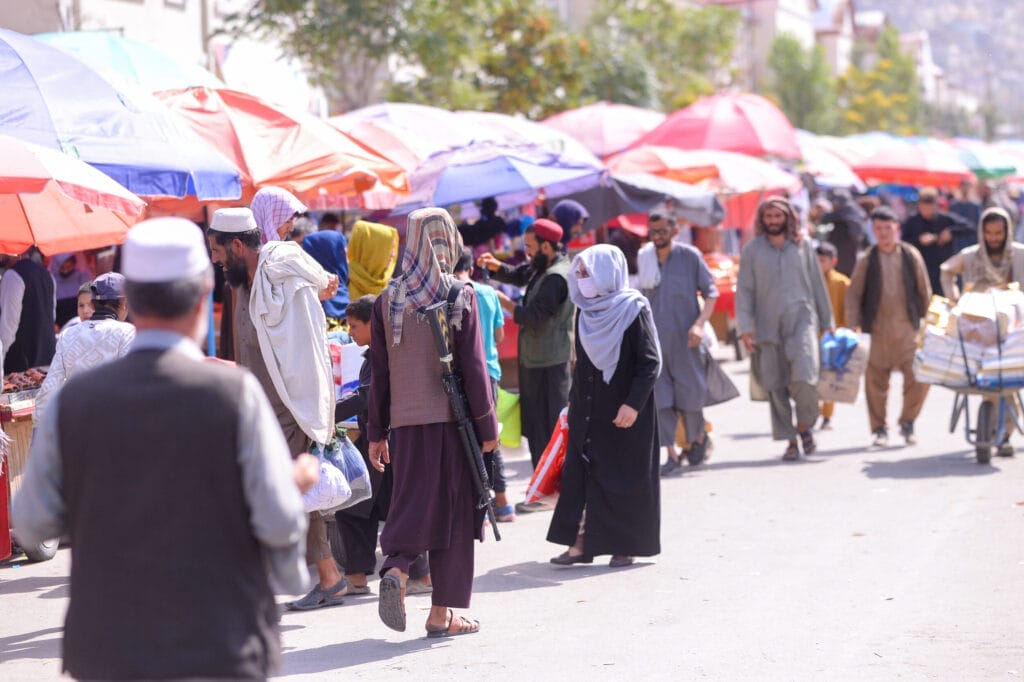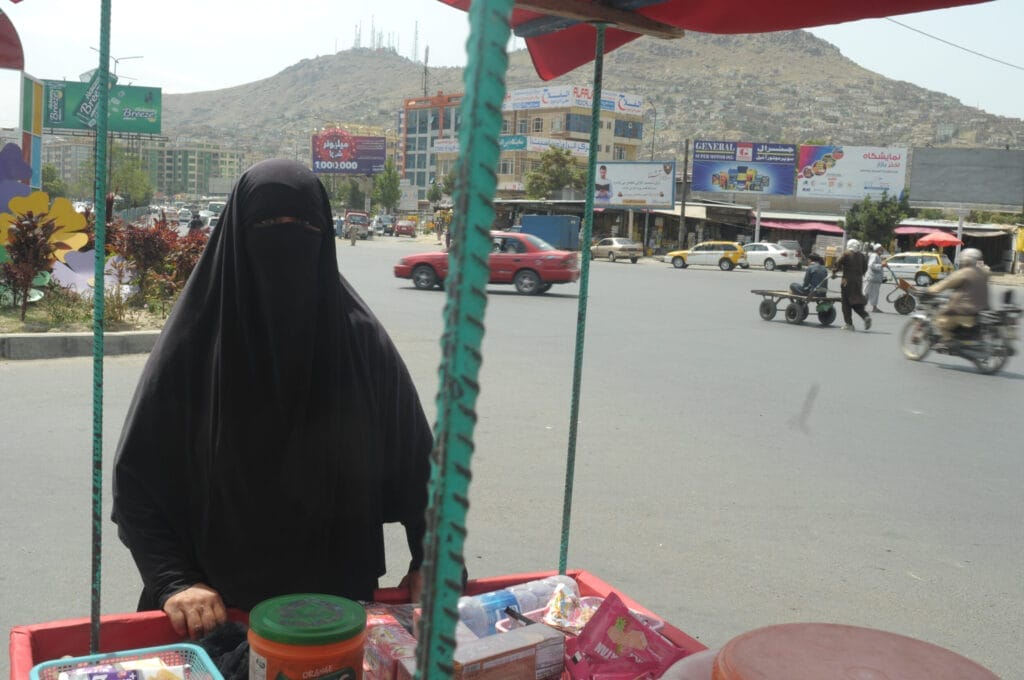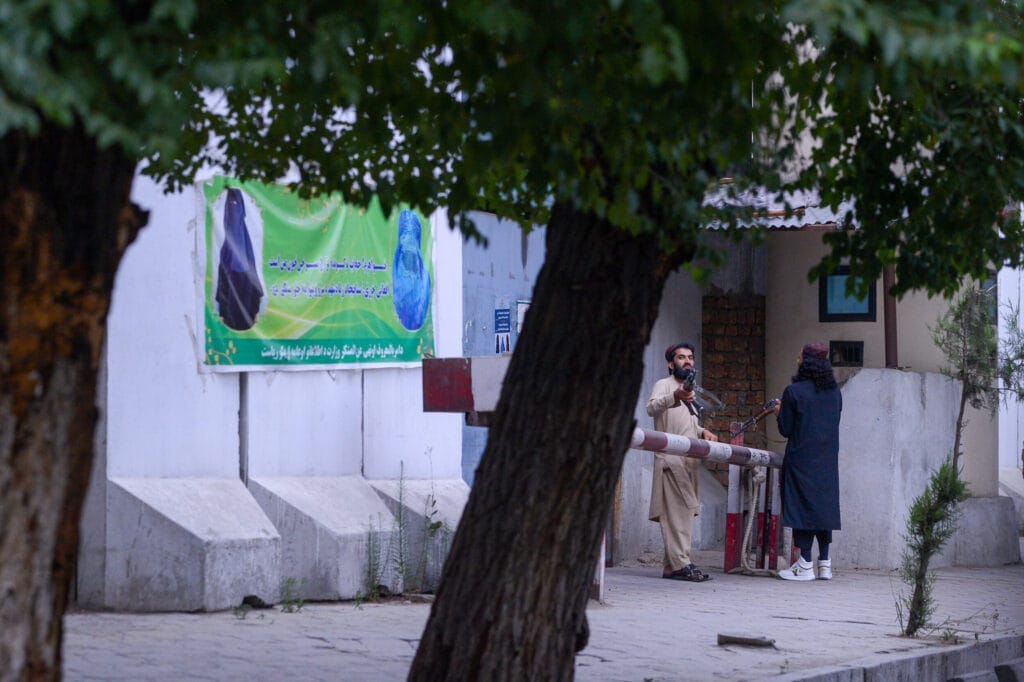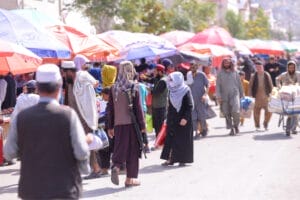Federal Admission Program Afghanistan before the end: Last chance for endangered Afghans
The Federal Admission Program offers particularly vulnerable Afghans a legal escape route to Germany. Now it is about to be discontinued.
Around 2,500 people are just the tip of the iceberg. They are threatened with deportation from Pakistan back to Afghanistan – at their own expense. The reason: Germany is not evacuating them as promised. The outgoing German government recently flew 150 Afghans from Islamabad to Germany via the various humanitarian admission programs – amid loud criticism from conservative and far-right media. However, even before the loud noise about deportations during the election campaign, the admission programs were de facto put on hold. The federal admission program in particular could have been a blueprint for safe and legal escape routes and a symbol of a controlled, humane refugee policy.

A misguided debate
This is being completely overlooked in the current debate about criminal foreigners and asylum seekers. Although statistics show that passports are not linked to criminality. Despite this, the parties have recently tried to outdo each other with slogans about either tightening border controls, restricting family reunification for those entitled to protection or stepping up deportations. It is not just the 2,500 people in Pakistan hoping for the promised evacuation to Germany who are being lost. Behind them are more than 17,000 people who are still in Afghanistan, some of whom are in mortal danger. Their cases have already been pre-selected and examined from around 50,000 cases submitted as part of the federal admission program. This means that those affected have not only completed a comprehensive online questionnaire from the responsible federal ministries, but have also submitted documents and answered follow-up questions.
Calls for border closures and deportations have long since drowned out the cries for help from endangered Afghans.

The chaotic withdrawal of troops and the consequences
As a reminder, with the chaotic withdrawal of the US from Afghanistan in 2021, the allies, including Germany, also hastily pulled down their tents and allowed the Taliban to take power. Thousands of women, journalists, artists, human rights activists, local staff (i.e. direct local employees of German authorities) and employees of non-governmental organizations have therefore been left behind and exposed to the terror regime’s desire for revenge.
The then newly formed and now failed Ampel coalition attempted to rectify the Merkel cabinet’s failures to evacuate particularly vulnerable people locally. In addition to the local forces procedure, it initially set up the human rights list, which was closed again without prior notice on August 31, 2021. It later set up a bridging program for humanitarian admission and finally the federal admission program. However, the promised (up to) 1000 evacuations per month never materialized. At last count, 3072 admission commitments had been issued, although these are not yet visas.
After the official start of the federal admission program on 17 October 2022 – more than a year after the fall of Kabul – nothing happened for months: the admission order and therefore the legal basis were still missing. Only the frequently asked questions on the relevant website provided information about the planned procedure. The first successful evacuations were immediately followed by a smear campaign by various media outlets about allegedly admitted dangerous individuals – and the prompt suspension of the federal admission program despite denials from the Federal Foreign Office.
The lack of transparency is also evident in another area: the lack of a central point of contact for Afghans at risk. Following pre-selection by the Federal Ministry of the Interior, more than 60 non-governmental organizations participated as reporting offices and thus served as door openers for Afghans at risk. However, they were left to decide for themselves whether to publicly communicate their function as an authorized reporting office. The few organizations that decided to do so were literally overrun with requests. The German government thus passed on the pre-selection to civil society. However, contrary to what Friedrich Merz implied, government agencies take over all control and security checks.
As a result, even the Afghans who have already received a confirmation of admission are trembling until their departure. This is because these approvals are subject to change until they receive their visa. This means that after months of waiting and successfully completed examination procedures, everything can be over without warning. Affected persons with admission approvals from the local worker procedure and the bridging program then only receive a standard email, usually without explanation. You can read about this in detail here, here and here.
Admission program for Afghanistan depends on political will
For the federal admission program for Afghanistan, Germany must at least adhere to an official revocation procedure; it is based on Section 23 of the Residence Act (the other programs are based on Section 22, which could also be referred to as the “charity paragraph”, as visas are completely dependent on the current political will). However, as the first admission commitments were only collected at the turn of the year 2024/2025 and revocation procedures were initiated, there is no empirical data for this yet.
However, the timing speaks for itself: as the end of the legislative period approaches, so does the end of the federal admission program for Afghanistan. The CDU in particular is insisting on ending this legal entry procedure. In doing so, it is forcing those affected onto irregular escape routes and into the arms of the people smugglers it claims to be fighting.
Addendum and insert from 29 March 2025: Jan Böhmermann took a closer look at the role of the federal police and the security procedures in the federal reception program on ZDF Magazin Royale. A look at the program offers explanations as to why the political debate is taking place in this way. Apparently, the Federal Police are actively contributing to it by suddenly having Afghan visas checked in Germany as part of criminal proceedings, even though they had already seen these visas in Islamabad(click here for the program in a separate tab) .
The case of Maiwand Majboor – who worked for GIZ for more than 20 years and was responsible for security tasks there (that’s how much he was trusted) – is an example of the disastrous consequences of this approach. The RND first reported on this. We are also in contact with him and know that his case has still not been seriously investigated.

Recording program under time pressure
The BMI also recognizes the additional time pressure that the domestic change of government is causing for the evacuation of Afghans. This explains the recent flights from Islamabad (Pakistan) to Germany. They came as a surprise to observers.
“The Federal Government will continue to facilitate the exit procedure for persons with a confirmation of admission to the program who wish to leave and who are able to leave (e.g. have passports and meet Pakistani exit requirements),” the BMI announced before the recent flights. This also applies to people with admission approval in Pakistan who are still in the process of leaving the country, even if they are seeking protection through other programs such as the Ortskräfteverfahren or the human rights list (bridging program). However, both programs have effectively ended. The Federal Ministry of the Interior has left open the reason why the outstanding admission commitments of the federal admission program have now been on hold for more than half a year. Will they still be granted?
In view of the media and political headwind for the admission procedures, the end of the evacuation of particularly vulnerable Afghans seems imminent. Although the SPD is sticking to this in its election manifesto, it could sacrifice the goal as a bargaining chip for the new coalition agreement. At least there is resistance to this within the party. A joint statement was recently drawn up by the federal working groups of the Greens and SPD and sent to Report vor Ort. “We do not have the impression that Nancy Faeser and Annalena Baerbock are doing everything necessary and possible to enable these people to be admitted to Germany quickly. There is a serious risk that people who have been promised asylum will be persecuted or even killed. Nancy and Annalena must not go down in history as the ones who promised to take in several thousand people persecuted by the Taliban and then left these people to their fate in Afghanistan and Pakistan,” warn Aziz Bozkurt, Federal Chairman of the SPD’s Migration & Diversity Working Group, and Svenja Borgschulte, spokesperson for the Greens’ Migration & Refugee Working Group.
In any case, it has been more than seven months since the last admission commitment. The Federal Foreign Ministry initially cited a lack of funding in the 2025 budget, but even promised funds in the transitional budget could not contribute to a serious continuation of the program (as reported by taz, among others).
Foreign Ministry and Federal Ministry of the Interior act in anticipatory obedience
Yet this step would have been a powerful one. As an administrative act, the pledges for protection in Germany are valid beyond the legislative period. The outgoing federal government could have kept its promise and demonstrated its humanitarian credentials. However, instead of making a clear commitment to the obligations, Olaf Scholz and Friedrich Merz outdid themselves with promises of deportation during the election campaign. In contrast, the cries for help from endangered Afghans for legal entry options have fallen silent.
“I understand that this raises questions among the population as to why Afghans are now being flown in,” notes Sebastian Korsch, doctoral student at the Chair of Public Law, European Law and International Law of Prof. Dr. Daniel Thym at the University of Konstanz (Lena originally conducted the interview with him for SÜDKURIER). A political debate on this is important, but rather with the question: “Why did the announced unbureaucratic quick solution to save these people take so long? Why is it taking two years to send planes? This is also important in terms of how to deal with similar situations in the future.” There must be solutions that actually help people at risk quickly and unbureaucratically; not, as in the case of the federal admission program, with a lengthy examination, visa and security procedure.
Transparency notice (24.04.2025):
Lena Reiner worked last year and has recently returned to the Ortskräfte sponsorship network, an association with links to Afghanistan. As part of her work, she helps local Afghan workers and their families to integrate. (At the time of publication of this article, the renewed employment relationship was not foreseeable, which is why this information was provided late).
Post published on March 26, 2025
Last edited on March 26, 2025
[mc4wp_form id=239488]



Leave a Reply
You must be logged in to post a comment.